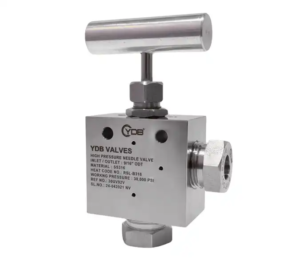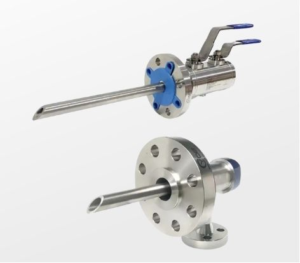In the rapidly changing industrial world, efficiency is no longer defined by how fast a system runs but by how intelligently it operates. From power generation to chemical manufacturing, modern plants rely on automation and data-driven control to maintain precision and safety.
At the heart of these systems are instrumentation valves, the small but critical components that make accurate measurement and control possible. As industries embrace digital transformation, these valves are taking on a smarter, more connected role than ever before.
Precision That Powers Automation
Every automated process depends on accurate measurement and reliable control of pressure, temperature, and flow. Instrumentation valves act as the gatekeepers in this system, regulating the flow of fluids or gases to ensure that sensors, gauges, and transmitters provide precise data. Whether installed in a refinery’s monitoring system or a power plant’s control panel, they help maintain stability and prevent fluctuations that could affect performance or safety.
Their design focuses on precision machining and sealing to eliminate leakage and maintain steady pressure. The result is dependable control, allowing operators and automated systems to make real-time decisions based on accurate data. Without the consistent performance of these valves, even the most advanced automation systems would struggle to maintain efficiency.
From Manual Control to Smart Integration
Traditional instrumentation valves were largely mechanical, designed to perform simple on/off or throttling functions. However, the rise of Industry 4.0 has transformed how these components fit into broader plant systems. Today, modern instrumentation valves are increasingly integrated with sensors, actuators, and digital interfaces that allow for remote operation and continuous monitoring.
This smart integration enables operators to track valve performance, detect anomalies, and even predict potential failures before they occur. With the help of data analytics and IoT connectivity, valves now provide insights that help improve maintenance planning and reduce downtime. A single instrumentation valve, once a passive mechanical part, has become an active participant in intelligent flow control networks.
Recommended Read: Uses of Instrumentation Valves
Meeting the Demands of Sour Gas and Hydrogen Applications
Few environments test the limits of material integrity like sour gas and hydrogen gas services. Both introduce challenges that can degrade conventional valve materials and threaten system safety if not properly managed.
Sour gas systems, rich in hydrogen sulfide (H2S), demand valves resistant to sulfide stress cracking and corrosion. YDB Valves manufactures instrumentation valves using Duplex, Super Duplex, Inconel, Monel, and SS316L, each selected for its proven resistance to H2S attack and chloride-induced corrosion. These materials maintain performance in aggressive refinery atmospheres, offshore production systems, and gas treatment plants.
Hydrogen service introduces another layer of complexity. Hydrogen’s small molecular size allows it to permeate through many metals, leading to hydrogen embrittlement. YDB Valves’ forged construction and material integrity ensure resistance to diffusion and cracking, maintaining reliable sealing even at high pressures and temperatures. This capability makes our valves ideally suited for hydrogen generation, storage, and transport systems.
Enhancing Efficiency in Digitally Connected Systems
In a digitally connected plant, every component must contribute to the overall efficiency of the operation. Instrumentation valves do this by enabling fine control over fluid and gas movement, which directly influences energy consumption and process optimization. When integrated into automated systems, they allow for precise adjustments that minimize waste and enhance output quality.
Advanced control systems can now modulate valve performance in response to real-time data, optimizing flow rates and maintaining consistent system pressure. The result is smoother operation, improved product consistency, and reduced operational costs. These improvements, while subtle in individual valves, scale dramatically across entire industrial networks.
Partnering with YDB Valves LLP for Smarter Flow Control
At YDB Valves LLP, we design and manufacture instrumentation valves that meet the demands of modern, connected plants. Our valves are engineered for precision, reliability, and seamless integration with automated systems. Built from corrosion-resistant materials and tested to global standards, they support accurate measurement, safety, and long service life.
We believe the future of flow control belongs to those who combine engineering excellence with intelligent design. If your operations demand precision and reliability, we’re here to deliver it. Contact YDB Valves LLP today to learn how our instrumentation valves can strengthen your process control systems.
We also supply high-pressure needle valves, butterfly valves, forged steel valves, API 6D ball valves, cast ball valves, and more.






